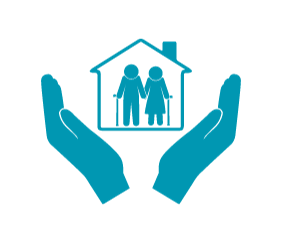Have you found yourself pondering about the challenges you face with your elderly mother? It’s not an uncommon occurrence for many individuals as they navigate the complex realities of caring for an older family member. This article takes a closer look at the reasons behind why your elderly mother may be exhibiting difficult behavior, shedding light on possible underlying factors and offering insights to help you better understand and cope with these challenges.

Understanding Elderly Behavior
As we grow older, we may notice changes in the behavior of our elderly parents that can sometimes be challenging to understand and deal with. This article aims to provide insight into the common challenges faced when dealing with elderly parents and offers possible reasons behind their difficult behavior. It is important to approach these situations with empathy, patience, and a willingness to understand the underlying causes.
Common Challenges in Dealing with Elderly Parents
When it comes to dealing with elderly parents, there are several common challenges that caregivers often face. These challenges can include physical health issues, mental health conditions, grief and loss, social isolation, changes in independence, communication barriers, role reversal, unresolved emotional issues, and the need for professional assistance. Each of these challenges can significantly impact the behavior of elderly individuals, making it important to explore each area in detail.
Physical Health Issues
Declining physical health can greatly influence an elderly person’s behavior. Chronic pain, illness, or a general decline in health may cause discomfort, fatigue, and limitations in mobility, resulting in frustration or irritability. It is important to note that physical changes may lead to emotional and psychological changes as well, which can manifest as difficult behavior. Understanding and being sensitive to the impact of declining physical health is crucial in providing appropriate support and care.
Contributing Factors to Physical Health Decline
There are several factors that contribute to physical health decline in the elderly. These factors include age-related changes, pre-existing medical conditions, lack of exercise, poor nutrition, inadequate sleep, and medication side effects. Recognizing and addressing these contributing factors can help improve overall well-being and potentially reduce difficult behavior.
Impact of Chronic Pain or Illness on Behavior
Chronic pain or illness can be a significant factor in difficult behavior among the elderly. The experience of ongoing pain or distress can lead to irritability, mood swings, depression, and anxiety. It is important to provide adequate pain management and seek appropriate medical interventions to alleviate these symptoms and improve the individual’s overall quality of life.
Mental Health Conditions
Mental health issues are prevalent among the elderly population and can significantly impact their behavior. Cognitive decline, such as dementia, can cause confusion, memory loss, and personality changes. Conditions like depression and anxiety are also common and may present as irritability, withdrawal, or agitation. Medications used to manage mental health conditions can also affect behavior and should be carefully monitored.
Prevalence of Mental Health Issues in the Elderly
Mental health issues are not uncommon in the elderly population. It is estimated that around 20% of older adults experience a mental health condition, with depression and anxiety being among the most prevalent. Cognitive decline, such as Alzheimer’s disease, affects a large number of elderly individuals and can significantly impact their behavior and ability to function independently.
Conditions like Depression, Anxiety, or Dementia
Depression, anxiety, and dementia can all contribute to difficult behavior in elderly individuals. Depression may cause persistent sadness, loss of interest, or withdrawal from social activities. Anxiety can lead to restlessness, excessive worry, and fearfulness. Dementia, including Alzheimer’s disease, can result in confusion, memory loss, personality changes, and even aggression. It is essential to approach these conditions with compassion and seek appropriate professional help.
Role of Medication in Behavior Changes
Medication can play a significant role in behavior changes among the elderly. Some medications used to manage physical or mental health conditions may have side effects that impact behavior, such as drowsiness, confusion, or mood swings. It is crucial to work closely with healthcare providers to monitor medication effects and adjust dosages if necessary. Regular medication reviews and communication with medical professionals can help mitigate potential behavioral issues.
Loss and Grief
Dealing with loss and grief can be extremely challenging for anyone, particularly the elderly. The loss of loved ones, friends, or significant life changes can trigger a range of emotions and impact behavior. Understanding the emotional impact of loss and grief on elderly individuals is crucial in supporting them through this difficult time.
Dealing with Loss of Loved Ones
The loss of loved ones is an inevitable part of life, and elderly individuals often experience more significant losses as they age. The death of a spouse, close friends, or siblings can be particularly devastating and may result in feelings of loneliness, sadness, or even anger. It is important to allow them space to grieve and provide emotional support during this challenging period.
Emotional Impact on Behavior
Loss and grief can have a profound impact on an individual’s emotional well-being, potentially leading to changes in behavior. Elderly individuals may exhibit signs of sadness, irritability, social withdrawal, or difficulty concentrating. It is important to be patient, compassionate, and understanding, offering a listening ear or encouraging them to seek professional counseling or therapy if needed.
Challenges of Adjusting to a New Stage in Life
Elderly individuals often face significant life changes as they age, such as retirement, moving to a different living arrangement, or experiencing declining health. These changes can be difficult to adjust to and may result in feelings of uncertainty, fear, or a loss of purpose. Providing support, reassurance, and encouragement can help them navigate these transitions more effectively and reduce any challenging behaviors that may arise.
Social Isolation
Social isolation is a common issue among the elderly, and it can have a significant impact on their behavior. Loneliness and a lack of social interaction can lead to feelings of sadness, anxiety, or even depression. Recognizing the importance of social connections and implementing strategies to reduce social isolation is vital for maintaining their emotional well-being.
Loneliness and its Effect on Behavior
Loneliness can be detrimental to an individual’s psychological and emotional health, leading to changes in behavior. Elderly individuals who feel lonely may exhibit signs of withdrawal, sadness, or irritability. It is essential to foster social connections, encourage participation in community activities or clubs, or facilitate regular contact with friends and family to combat feelings of loneliness.
Lack of Social Interaction and Stimulation
A lack of social interaction and mental stimulation can contribute to difficult behavior among the elderly. Without opportunities for social engagement, individuals may become bored, frustrated, or exhibit signs of restlessness. Providing opportunities for socialization, such as outings, group activities, or even virtual interactions, can help keep their minds active, enhance their well-being, and reduce difficult behaviors.
Strategies for Reducing Social Isolation
Reducing social isolation requires intentional efforts and strategies. Encouraging elderly individuals to participate in social activities, connecting them with support groups or community centers, arranging visits from friends or family, or utilizing technology for virtual social interactions can all help decrease social isolation. Additionally, caregivers and loved ones should regularly check in, engage in meaningful conversations, and actively involve the elderly individual in decision-making processes.
Changes in Independence
As elderly individuals experience physical and cognitive changes, they may face a loss of autonomy and control over their lives. This loss of independence can be frustrating and result in difficult behavior. Recognizing the importance of promoting independence and empowerment is vital in maintaining their sense of self-worth and minimizing challenging behaviors.
Loss of Autonomy and Control
Losing autonomy and control over one’s life can be a significant source of frustration for the elderly. This loss can occur due to physical limitations, cognitive decline, or the need for assistance with daily tasks. Finding ways to empower individuals by involving them in decision-making, providing choices whenever possible, and acknowledging their abilities can help maintain their sense of independence and mitigate challenging behaviors.
Frustration with Physical Limitations
Physical limitations associated with aging, such as reduced mobility or impaired dexterity, can cause frustration in elderly individuals. Tasks that were once simple and routine may become challenging or impossible to perform independently. Providing adaptive equipment, modifying the environment for accessibility, and offering physical therapy or exercise programs tailored to their abilities can help reduce frustration and maintain their overall well-being.
Ways to Promote Independence and Empowerment
Promoting independence and empowerment can significantly improve an elderly individual’s well-being. Encouraging them to engage in activities that align with their capabilities, maintaining a positive and optimistic attitude, praising their accomplishments, and providing assistance only when necessary are effective strategies for promoting independence. Additionally, encouraging the use of assistive devices or technology can enable them to maintain greater autonomy and control over their lives.
Communication Barriers
Effective communication is essential in any relationship, and it becomes even more crucial when dealing with elderly individuals. Communication barriers such as hearing or vision impairment, difficulties in expressing themselves, or cognitive decline can result in misunderstandings, frustration, or hurt feelings. Employing clear communication strategies is key to fostering understanding and maintaining healthy relationships.
Hearing or Vision Impairment
Hearing or vision impairments are common among the elderly and can significantly affect communication. Difficulty hearing or seeing can lead to misunderstandings, feelings of exclusion, or frustration. Using visual aids, speaking clearly and slowly, using gestures or facial expressions, and ensuring adequate lighting and a quiet environment can help improve communication and reduce any related challenging behaviors.
Difficulties in Expressing Themselves
As individuals age, they may experience difficulties in expressing themselves or finding the right words to convey their thoughts and feelings. This can lead to frustration, withdrawal, or even outbursts. Providing a safe and patient space for conversation, actively listening, observing non-verbal cues, and asking open-ended questions can facilitate effective communication and help elderly individuals express themselves more effectively.
Importance of Clear Communication Strategies
Clear communication is fundamental when dealing with elderly individuals. It is important to use simple and concise language, provide visual cues or aids when necessary, maintain eye contact, and give individuals ample time to process information and respond. Active listening, empathy, and patience are vital in ensuring that the message is understood and received positively, reducing the likelihood of difficult behaviors arising due to miscommunication.
Role Reversal
As parents age, there is often a shift in the dynamics between them and their adult children. The responsibility of caregiving may fall on the children, leading to changes in the parent-child relationship. Adjusting to this role reversal can be challenging and requires understanding, empathy, and patience from both parties involved.
Shift in Parent-Child Dynamics
The shift in parent-child dynamics can be challenging for both the elderly parent and the adult child. The parent may struggle with accepting help or relying on their child for assistance, feeling a loss of independence or a reduced sense of self-worth. The child, on the other hand, may find it difficult to establish boundaries or navigate their new caregiving responsibilities. Open and honest communication, setting mutually agreed-upon expectations, and seeking support from other caregivers or support groups can help navigate this transition more smoothly.
Accepting New Responsibilities as a Caregiver
Accepting new responsibilities as a caregiver can be overwhelming, especially when it involves providing care for a parent. It is essential to acknowledge and manage one’s own emotions and seek support from friends, family, or professional caregivers. Establishing a caregiving routine, involving the parent in decision-making processes, and maintaining open lines of communication can help maintain empathy and patience in this role.
Strategies for Maintaining Empathy and Patience
Maintaining empathy and patience is crucial in maintaining a healthy relationship during the role reversal process. Taking time for self-care, seeking education and resources on caregiving, engaging in empathy-building exercises, and regularly communicating feelings and concerns can help foster understanding, empathy, and patience. Recognizing that both parties are navigating new territory and acknowledging the challenges can facilitate a more compassionate and supportive caregiving relationship.
Unresolved Emotional Issues
Unresolved emotional issues from the past, such as trauma or unresolved conflicts, can significantly impact an individual’s behavior, particularly in their later years. Understanding the role that past experiences play in shaping behavior is important for providing appropriate support and encouraging healing.
Past Trauma or Unresolved Conflicts
Past trauma or unresolved conflicts can have a long-lasting impact on an individual’s emotional well-being. This can manifest as difficult behavior, mood swings, or emotional instability. It is important to be sensitive to these underlying issues and provide a safe and supportive environment for the elderly individual to express their feelings. Encouraging therapy or counseling as a means of addressing unresolved emotional issues may be beneficial.
Impact of Childhood Experiences on Behavior
Childhood experiences can significantly shape an individual’s behavior, even in their later years. Adverse childhood experiences or unresolved conflicts from the past can manifest as challenging behaviors, unresolved anger, or difficulty trusting others. Recognizing the influence of childhood experiences on behavior can help provide a greater understanding and empathy towards the elderly individual, supporting their emotional well-being.
Benefits of Therapy or Counseling
Therapy or counseling can provide immense benefits for elderly individuals with unresolved emotional issues. It offers a safe space to process past experiences, validate emotions, and explore effective coping strategies. Professional therapists or counselors can help individuals identify and address unresolved conflicts, enabling them to live a more fulfilling and balanced life. Encouraging elderly individuals to seek therapy or counseling can have a positive impact on their behavior and overall well-being.
Seeking Professional Assistance
There may come a time when seeking professional assistance becomes necessary for dealing with difficult behavior in elderly parents. Recognizing when professional help is needed and understanding the benefits of consulting healthcare providers are important steps towards providing the best care for your loved ones.
When to Consider Seeking Professional Help
It may be time to consider seeking professional help when the difficult behavior of an elderly parent is persistent, significantly impacting their quality of life, or poses a risk to their safety or the safety of others. Signs that professional assistance may be needed include severe mood swings, aggression, withdrawal from activities, sudden changes in behavior, or an inability to perform daily tasks. Consulting healthcare providers can help determine the underlying causes of the behavior and guide appropriate interventions.
Benefits of Consulting Healthcare Providers
Consulting healthcare providers has several benefits when dealing with difficult behavior in elderly parents. Healthcare professionals, such as geriatricians, psychiatrists, or therapists, can conduct thorough assessments to identify any underlying physical or mental health issues. They can offer guidance on medication management, provide referrals to specialists, suggest therapeutic interventions, and work collaboratively with caregivers to develop personalized care plans. Consulting healthcare providers ensures a holistic approach to addressing challenging behaviors and improves the overall well-being of elderly individuals.
Resources Available for Caregivers
Caregiving can be a demanding and sometimes overwhelming role. Fortunately, there are numerous resources available to support and assist caregivers in dealing with difficult behavior in elderly parents. Support groups, both in-person and online, provide a sense of community and a space to share experiences and advice. Local community centers, senior centers, or religious organizations often offer programs and services specifically designed for caregivers. In addition, there are government-funded agencies, nonprofits, and private organizations that provide respite care, home health services, or educational resources to support caregivers in their journey.
In conclusion, understanding and dealing with difficult behavior in elderly parents requires empathy, patience, and a comprehensive understanding of the potential underlying causes. Physical health issues, mental health conditions, loss and grief, social isolation, changes in independence, communication barriers, role reversal, unresolved emotional issues, and the need for professional assistance can all contribute to difficult behavior. It is important to approach these challenges with a friendly and understanding tone, seeking appropriate interventions and support to provide the best care for our elderly loved ones.


